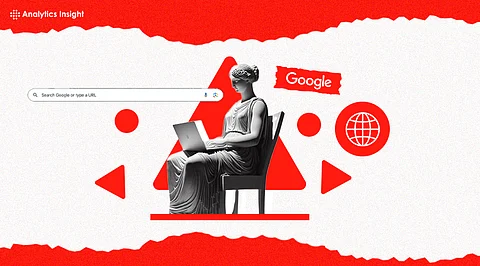

Google’s Search AI uses web content without permission or links, disrupting traffic and ad revenue for publishers. Legal protections are unclear, robots.txt is outdated, and creators face a future where AI profits from their work without giving anything back. Learn how it works and what it means for users.
Google has revolutionized how users browse content online with its Search Generative Experience (SGE). Now, its AI is able to draw on public web content to produce answers without permission and without linking back to the original. For web publishers and content creators, this is rewriting the internet's rulebook. Let’s understand how this Google move reshapes discovery, ownership, and the future of the open web.
Google AI Summary regularly borrows material from Reddit, Stack Overflow, Healthline, and news blogs without giving credit. Coders have noticed the Stack Overflow code solutions reworded in AI Overviews. Health material is paraphrased from medical websites.
News insights copy independent blogs while blocking traffic and credit to other original writers. This AI-first approach rewires discovery, users stay on Google. As a result, content creators lose the view, engagement, and monetization attached to their original work.
Earlier, Google spiders used to crawl sites, index pages, and refer traffic back through search results. It was a good bargain, you give the tech giant access, and it sends readers your way.
Today, things have changed. Google's AI consumes text from throughout the web, learns from it, and then creates its responses. Such responses usually pop up directly in search results without links or attribution. It utilizes strong models such as Gemini to summarize concepts and facts from multiple sources. That's more than crawling, it's rewriting.
Websites use robots.txt files to exclude search bots. However, this works for web crawlers, not machine models. The company maintains that it honors these rules in indexing but its AI training is another thing entirely.
Most Google models are trained on historical datasets containing public web material, typically from sources that did not permit crawling. Even if a site update its robots.txt file today, it doesn’t undo what’s already been used.
Currently, there are no definite laws stating whether AI can reuse public web content without permission. In the United States, Google operates based on ‘fair use’ laws. It means that the content may be reused if it's rearranged into something new, such as AI summaries. However, fair use is a gray area, especially when businesses profit from content.
Europe is developing new regulations that could soon compel firms to disclose what data they use to train AI. That could make the tech giant open up more about how it constructs models such as Gemini. Meanwhile, the absence of regulation benefits Google.
If AI keeps users stuck to search results, fewer people will click on links to the original website. It will result in lower traffic and reduced ad revenue for publishers. Eventually, this can decrease the diversity and quality of online content.
Creators will no longer share freely or lock their work behind paywalls. Others will even block AI altogether. This violates the main purpose of the open web: visibility in exchange for access. SEO is changing as well. It's no longer simply about being high in the rankings. Creators now need to find ways to get their content noticed by AI, even when there isn't a clear way to do that.
The company advertises AI searches as being quick and useful. However, it hasn't explained how much material it's using, who gets credit, or how creators are rewarded. There's no source list, no opt-out of AI use, and no Content ID-like system to safeguard text-based content. Then, who owns online knowledge?
Although tech enthusiasts applaud how AI is revolutionizing everything and making everyday life easier. It has a dark side too. If search engines take from the web without contributing, creators may choose to stop sharing altogether.
Google’s AI-driven search is here to stay. What happens next depends on how quickly regulations evolve, whether any real limits are placed on content usage, and how developers, creators, and users respond. These decisions must come soon, before AI fully replaces human contribution on the open web.
